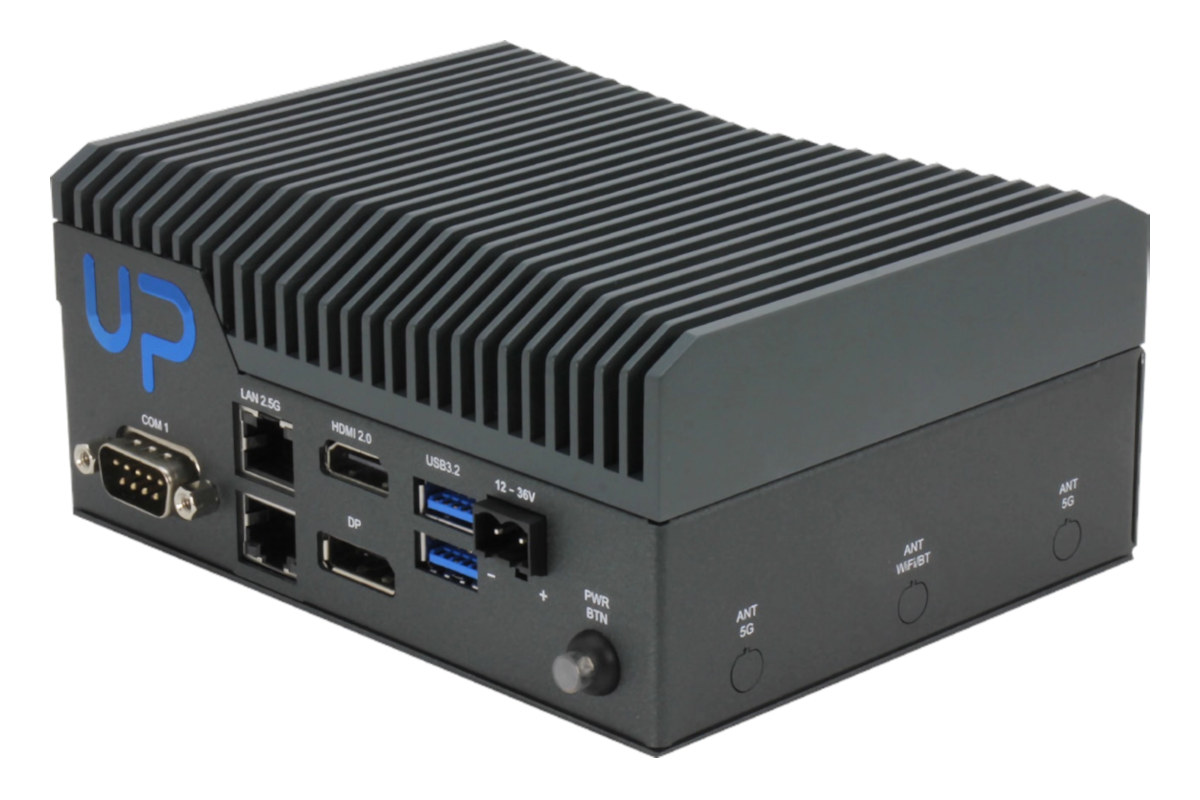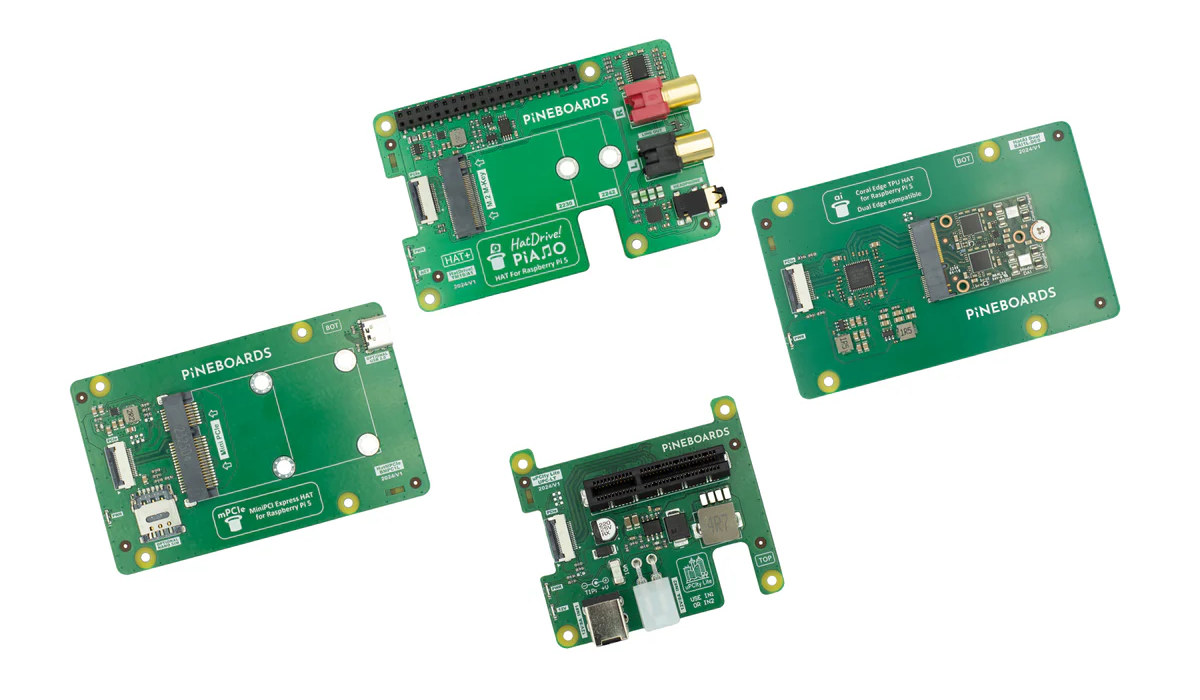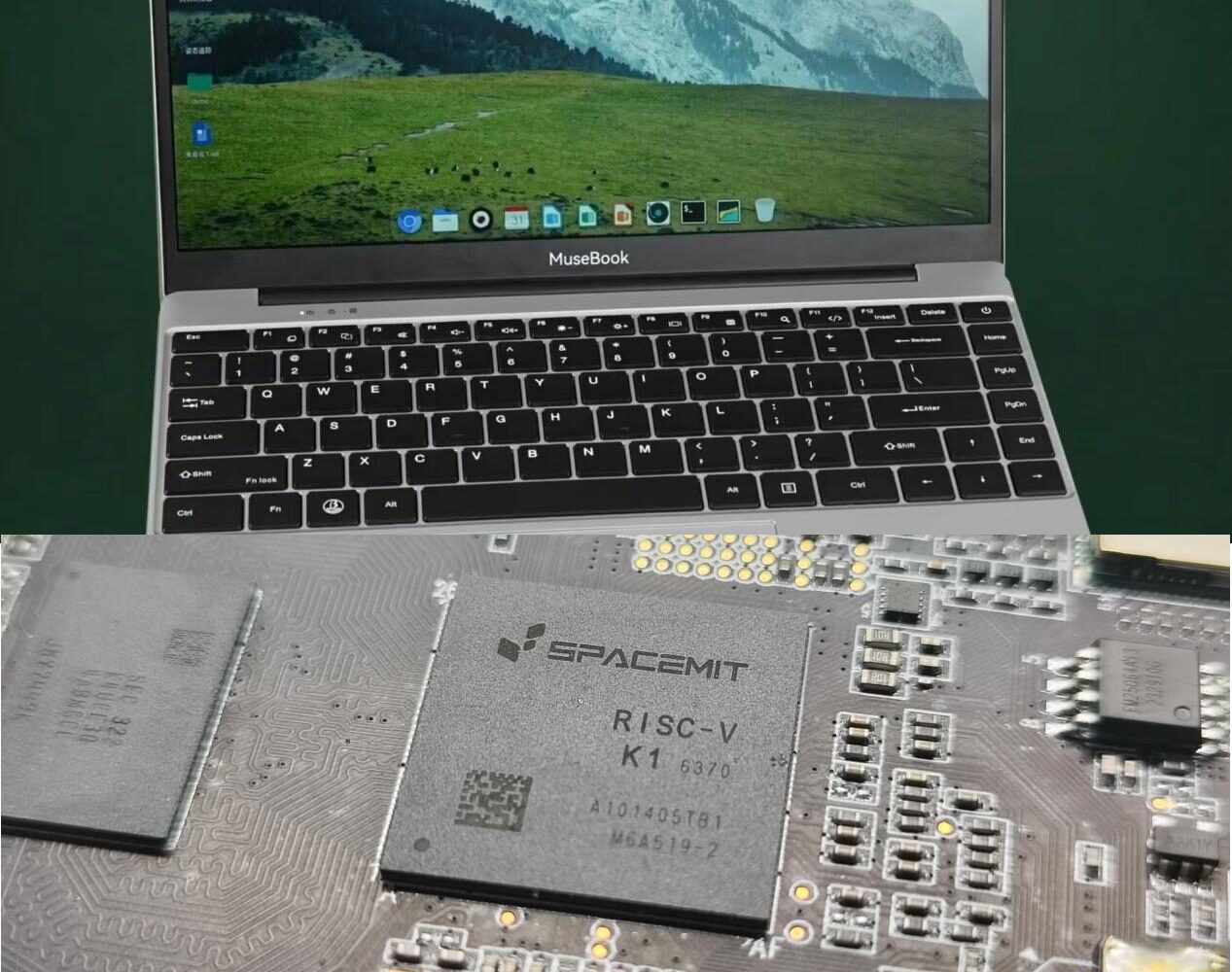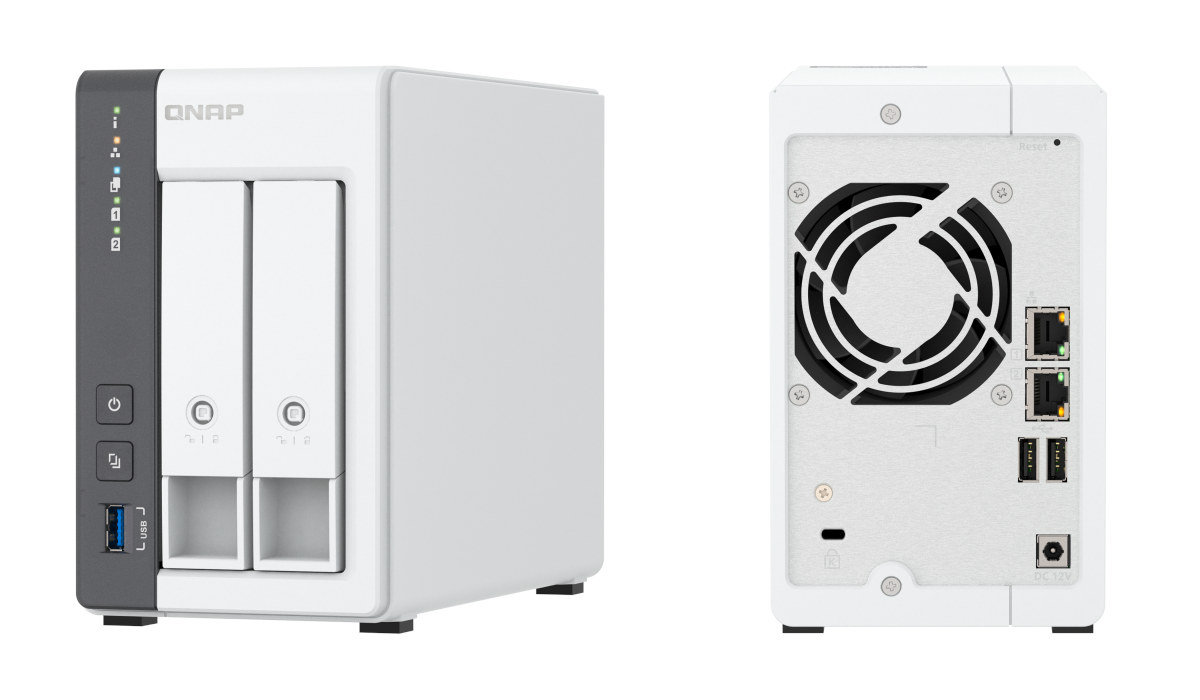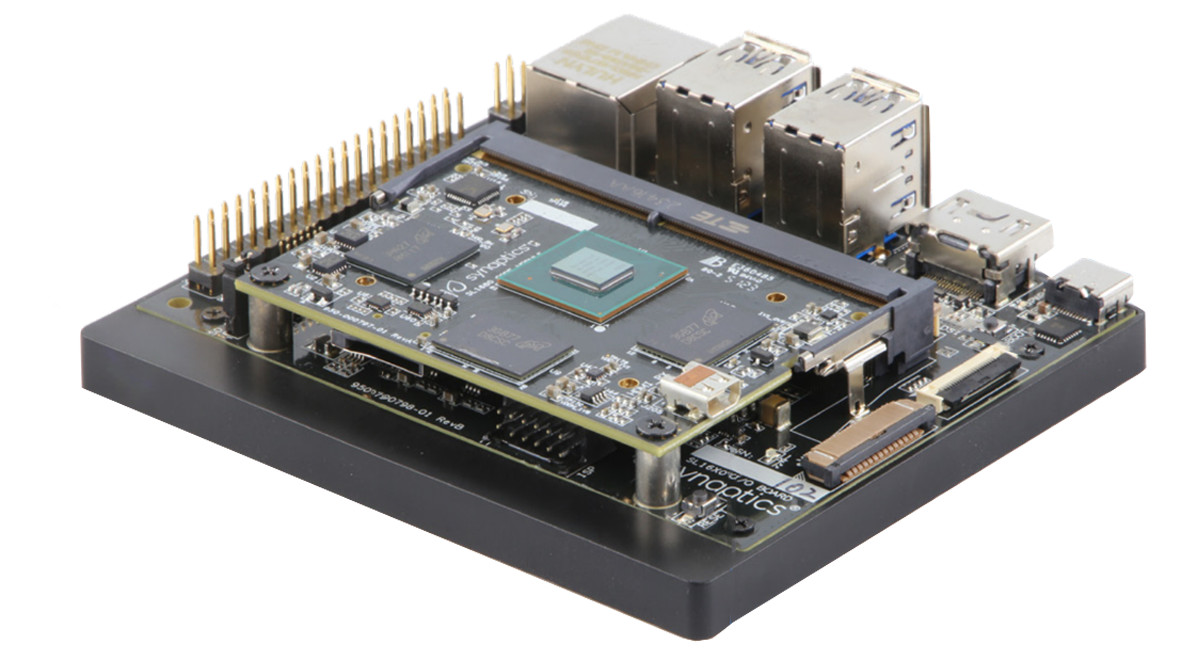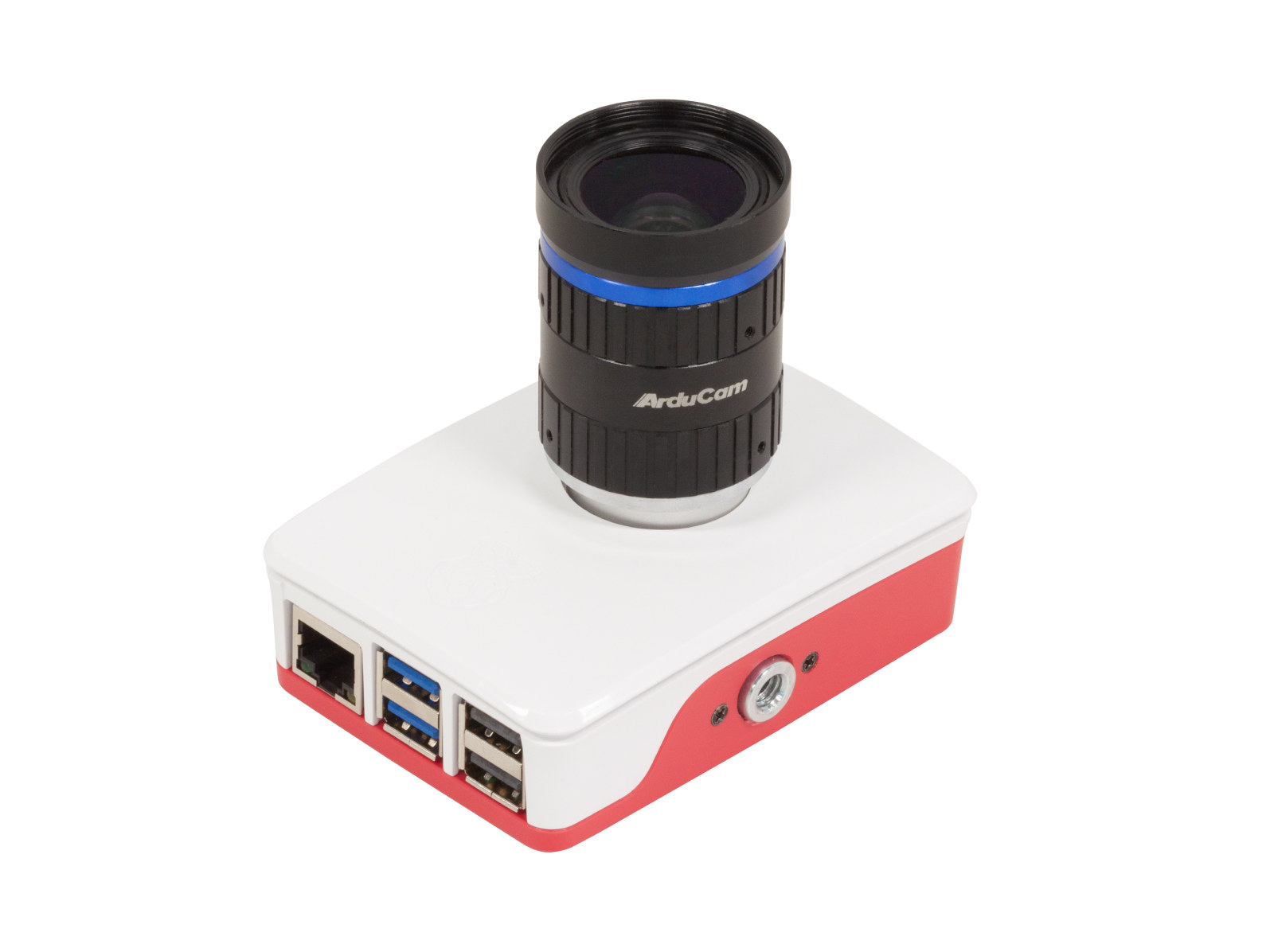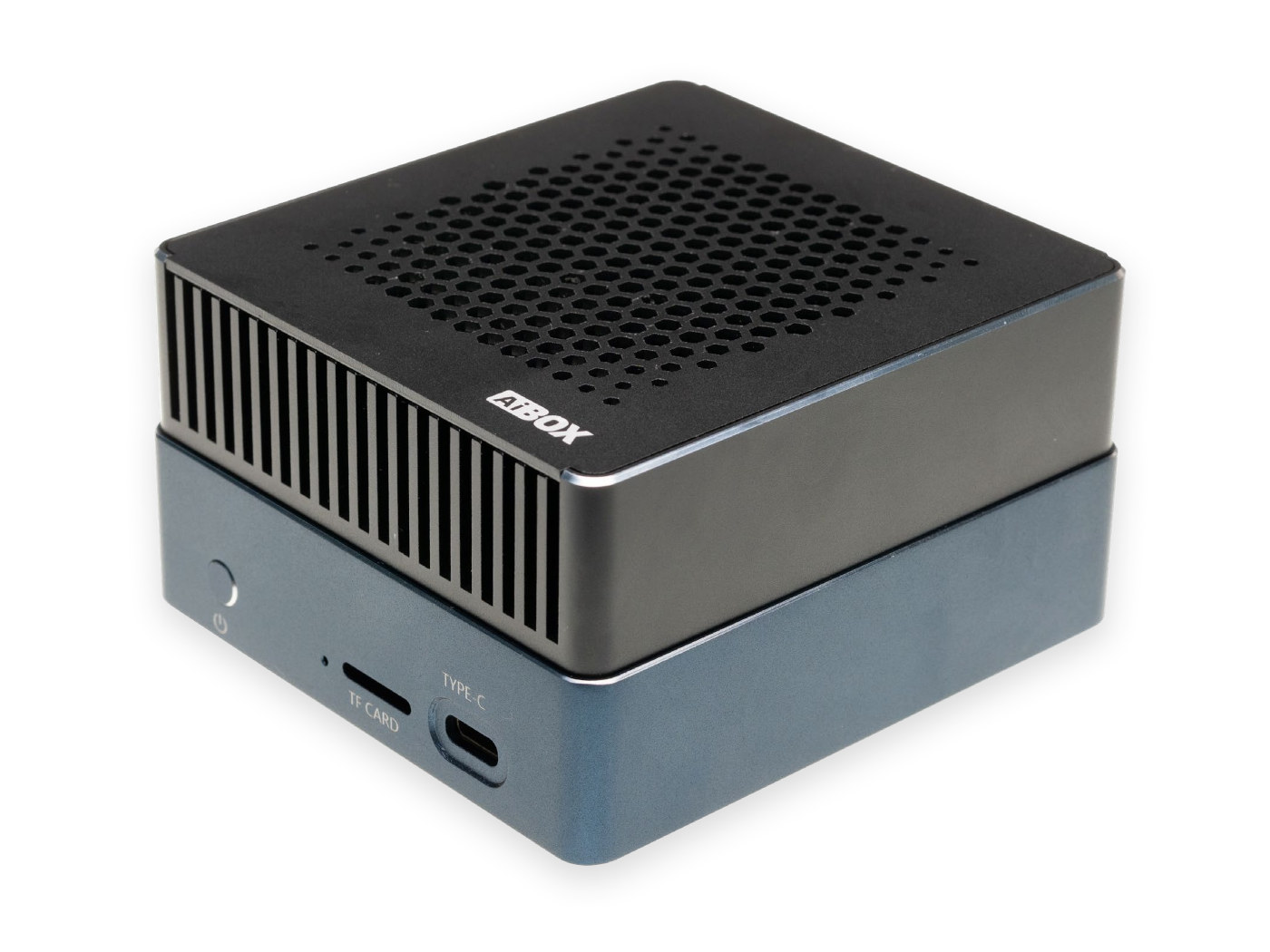The Waveshare UGV Rover is a 6-wheel robot platform based on Raspberry Pi 4 or 5 as well as an ESP32 module and built for remote exploration, object recognition, and autonomous navigation. Since the source code for the platform will be open-sourced it can also be used for educational purposes, programming, robotics, AI experimentation, and many other applications. This Unmanned Ground Vehicle (UGV) rover features a 2mm thick aluminum body, six 80mm shock-absorbing tires, and a four-wheel drive system controlled by an ESP32 sub-controller. The sub-controller also handles sensors, LiDAR, cameras, and more. The brain or the main controller of the rover is a Raspberry Pi SBC – either a Pi 4B or Pi 5 – which notably handles computer vision and machine learning operations. Since the mounting holes are designed to fit a Raspberry Pi, it is safe to assume that it will fit other SBCs with the same […]
UP Squared Pro 710H Edge mini PC combines Processor N97 or Core i3-N305 CPU with 26 TOPS Hailo-8 AI accelerator
AAEON UP Squared Pro 710H Edge is a mini PC with an onboard Hailo-8 edge 26 TOPS AI accelerator and an Intel Processor N97 or Core i3-N305 Alder Lake-N CPU designed for edge AI applications. The fanless Edge AI mini PC comes up to 16GB LPDDR5 soldered-on RAM, up to 128GB eMMC flash, and offers dual 4K video output through HDMI and DisplayPort connector, dual 2.5GbE, optional WiFi and cellular connectivity, two USB 3.2 ports, an RS232/RS422/RS485 COM port, a 40-pin female GPIO header, and a wide 12 to 36V DC input. UP Squared Pro 710H Edge specifications: Alder Lake N-series SoC (one or the other) Intel Processor N97 quad-core processor up to 3.6 GHz with 6MB cache, 24EU Intel UHD Graphics Gen 12 @ 1.2 GHz; TDP: 12W Intel Core i3-N305 octa-core processor up to 3.8 GHz with 6MB cache, 32EU Intel UHD Graphics Gen 12 @ 1.25 GHz; […]
Pineboards adds four more Raspberry Pi 5 PCIe HAT+ boards with PCIe x4 slot, mPCIe socket, Coral Dual Edge TPU support, and audio ports
Pineboards, previously known as PineBerry, has launched four new Raspberry Pi HAT+ with a PCIe interface: the Hat uPCIty Lite, HatDrive! Piano, Hat mPCIe, and Hat Ai! Dual. The Polish company decided to change the name from Pineberry to Pineboards since the “berry” name implied they were manufacturing single-board computers, while Pineboards, not to be confused with Pine64 boards, apparently does not :). Nevertheless, let’s have a look at the four new HAT+ boards. Hat uPCIty Lite – PCIe x4 slot and ATX power supply Specifications: Supported SBCs – Raspberry Pi 5 and other SBCs with a compatible 16-pin PCIe FPC connector and form factor PCIe 16-pin PCIe FPC connector (input) PCIe X4 slot (output) to connect PCIe cards such as NVIDIA or AMD graphics cards; Note: only PCIe x1 Gen2 and Gen3 are supported Misc – 12V and PWR LEDs Power Supply 12V/8A via ATX power connector 12V/8A via […]
Muse Book laptop features SpacemiT K1 octa-core RISC-V AI processor, up to 16GB RAM
SpacemiT, a chip design company from China with RISC-V as its core technology, recently unveiled the Muse Book laptop based on the K1 octa-core RISC-V chip. Unlike our daily laptops, it has many interesting unique features and is mainly sold to hardware engineers and DIY enthusiasts. This Muse Book runs the Bianbu OS operating system based on the Debian distribution and optimized to run on the SpacemiT K1 octa-core RISC-V SoC. Let’s first take a look at its external interfaces. On the left side of the laptop, there are two USB Type-C interfaces, a USB 3.0 Type-A port, a 3.5mm headphone jack, a microSD card slot, and a reset pinhole. The 8-pin header on the right side of the laptop is quite interesting, and SpacemiT hopes the Muse Book can become one of the most convenient hardware development platforms for RISC-V. In addition to the power pins, users will find […]
QNAP TS-216G 2-bay NAS features a quad-core Arm processor with NPU for image sorting and searching
QNAP TS-216G 2-bay NAS features a quad-core Arm Cortex-A55 processor with an NPU for AI-powered photo management, 4GB RAM, 2.5GbE and GbE networking ports, two hot-swappable 3.5-inch SATA bay, and a few USB ports. It looks to be an update to the Rockchip RK3566-powered QNAP TS-133/TS-223 with more memory (4GB vs 2GB) and more advanced networking capability (2.5GbE+GbE vs GbE only), while still keeping the object and face recognition capabilities. QNAP TS-216G specifications: SoC – Unnamed but likely Rockchip RK3566 CPU – Quad-core Cortex-A55 clocked at up to 2.0 GHz GPU – Mali-G52 Neural Processing Unit (NPU) Hardware-accelerated Transcoding Encryption Engine System Memory – 4 GB RAM Storage 4 GB eMMC flash (dual boot OS protection) 2x 3.5-inch SATA III bay also supporting 2.5-inch SATA SSDs; hot-swappable Networking 2.5GbE RJ45 jack Gigabit Ethernet jack Wake-on-LAN (WoL) and Jumbo Frame support Number of Concurrent Connections (CIFS) – Up to 200 USB […]
Synaptics Astra platform takes SL1620, SL1640, or SL1680 Arm CPU module for Edge AI applications
Synaptics has unveiled its new Astra platform with a range of SoC and a development kit for edge AI applications. These new processors and a supporting development kit are built to provide out-of-the-box AI capabilities for IoT devices, reducing reliance on cloud-based AI. This new Synaptics Astra Platform is built around three main SoCs. The SL1680 is built for multi-modal IoT applications and features a quad-core Arm Cortex-A73 CPU, dedicated 7.9 TOPS NPU, and 4K video. The SL1640 is a cost and power-optimized SoC with a quad-core Cortex-A55 CPU and 1.6+ TOPS NPU. Finally, the SL1620 is a graphics and AI accelerator with a quad-core Cortex-A55 CPU and dual-core Imagination BXE-2-32 GPU but does not feature an NPU. The development kit features a module design where the new swappable compute modules allow flexible configurations. The devkit will support open Yocto Linux distribution and Synaptics AI toolkit for quick AI integration. […]
Pivistation 5 – A Raspberry Pi 5 Camera Kit to quickly get started with computer vision (Crowdfunding)
Arducam Pivistation 5 is an all-in-one Raspberry Pi 5 camera kit that aims to provide a turnkey hardware and software solution to quickly get started with computer vision applications and offered with a choice of camera sensors designed for various applications. The system looks like a Raspberry Pi 5 SBC housed in the official case fitted with a camera. Three models are available, namely the “Hawkeye” featuring a high-resolution 64MP autofocus camera, the “Darksee” with an 8MP camera sensor with ultra low-light sensitivity, and the “Klarity” with a 20MP camera with fixed focus and a large 1-inch sensor. Pivistation 5 specifications All the cameras above rely on a rolling shutter, but the company is also working on the upcoming Arducam Pivistation 5 Swift model that includes a global shutter for robotics applications. Besides the pre-assembled hardware, the Arducam Pivistation 5 family aims to quicken the development process with pre-installed software […]
Firefly AIBOX-1684X compact AI Box delivers 32 TOPS for large language models, image generation, video analytics, and more
Firefly AIBOX-1684X is a compact AI Box based on SOPHON BM1684X octa-core Arm Cortex-53 processor with a 32 TOPS AI accelerator suitable for large language models (LLM) such as Llama 2, Stable Diffusion image generation solution, and traditional CNN and RNN neural network architectures. Firefly had already released several designs based on the SOPHON BM1684X AI processor with the full-featured Firefly EC-A1684XJD4 FD Edge AI computer and the AIO-1684XQ motherboard, but the AIBOX-1684X AI Box offers the same level of performance, just without as many interfaces, in a compact enclosure measuring just 90.6 x 84.4 x 48.5 mm. AIBOX-1684X AI box specifications: SoC – SOPHGO SOPHON BM1684X CPU – Octa-core Arm Cortex-A53 processor @ up to 2.3 GHz TPU – Up to 32TOPS (INT8), 16 TFLOPS (FP16/BF16), 2 TFLOPS (FP32) VPU Up to 32-channel H.265/H.264 1080p25 video decoding Up to 32-channel 1080p25 HD video processing (decoding + AI analysis) Up […]



